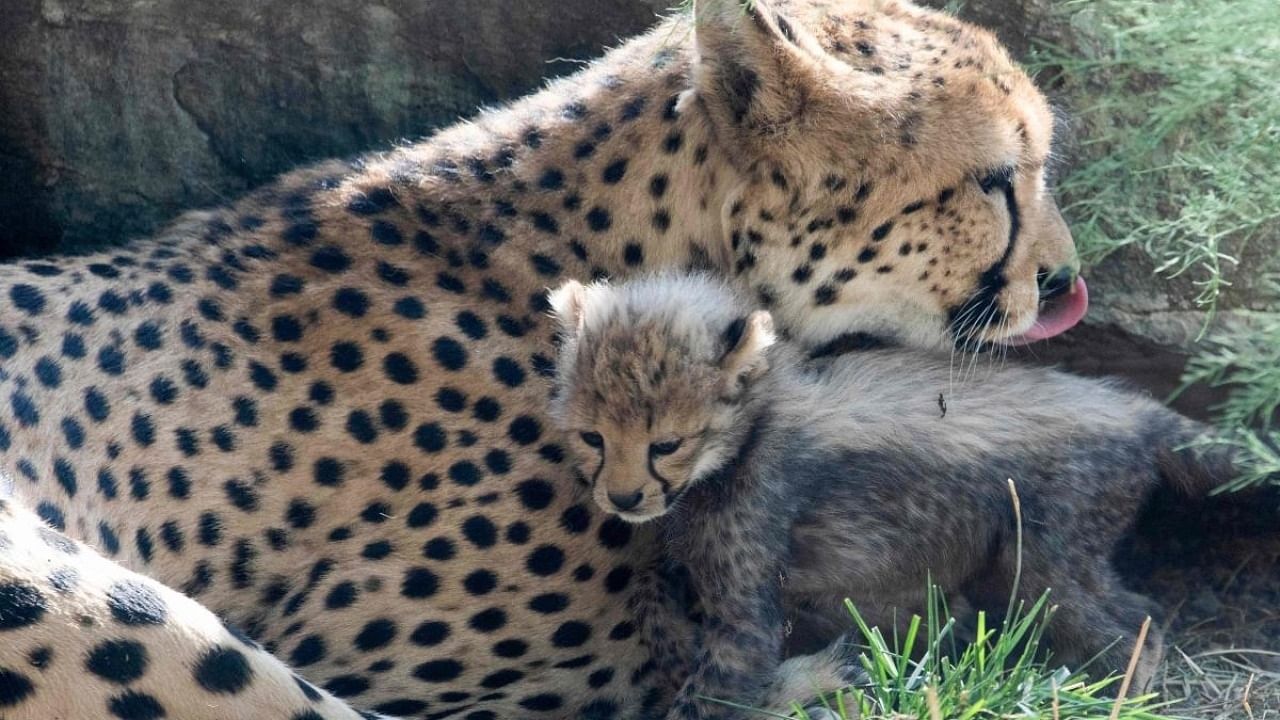
A two-month-old cheetah cub died at Kuno national park on Tuesday with the forest officials claiming that the cub was weaker than its siblings from the very beginning.
Early in the morning, a forest department monitoring team following Jwala (a three-year-old Namibian female cheetah) and her four cubs found that one of the cubs was unable to move along with the mother and three siblings. It was too weak to even raise its head when the team approached.
While veterinarians tried to revive the cub, they could not do much. On preliminary examination, the death appears to be caused by weakness, according to an official statement issued by the Madhya Pradesh forest department.
The park is now left with 17 adults and three cubs born on March 29. Six of them are in the wild while a couple of more will be released before the monsoon.
Citing scientific literature and experts' opinions, the officials said since cheetah cubs in African jungles had a survivability of merely 10 per cent, the number of cubs was the maximum in case of cheetahs among all the wild felines.
Among the four cubs, it was the smallest and least agile and healthy from the very beginning. It was unable to consume the quantity of milk, which the other three did.
Such cubs, officials said, could not survive long. “The death should be seen in the context of survival of the fittest,” the forest department said in the state.
India brought 20 cheetahs from Namibia and South Africa with the aim of introducing African cheetahs nearly 70 years after Asiatic cheetahs became extinct from India.
Eight Namibian cheetahs – five female and three male – were released into enclosures at the Kuno National Park on September 17 last year on the birthday of Prime Minister Narendra Modi. In February this year, 12 more cheetahs arrived from South Africa.
